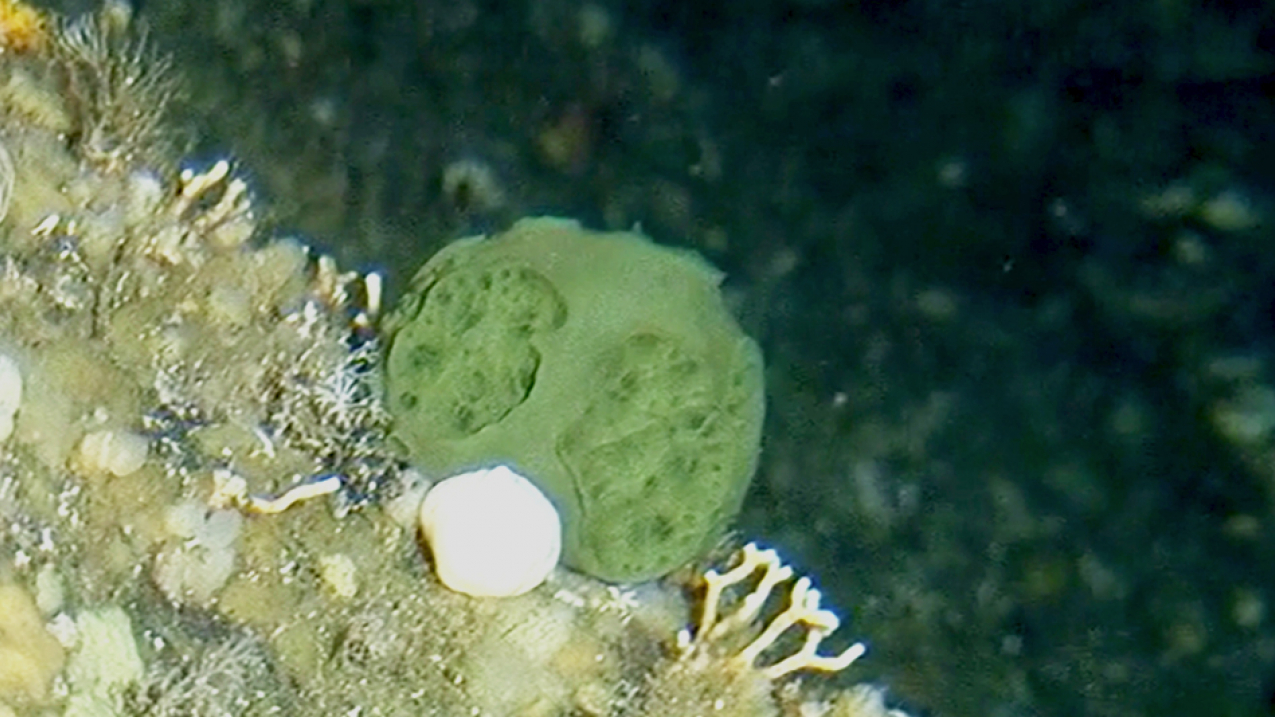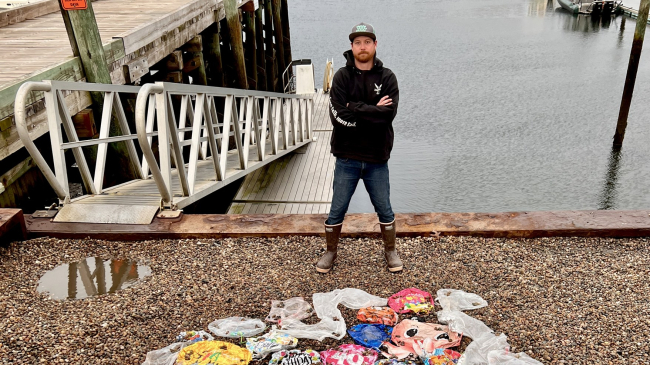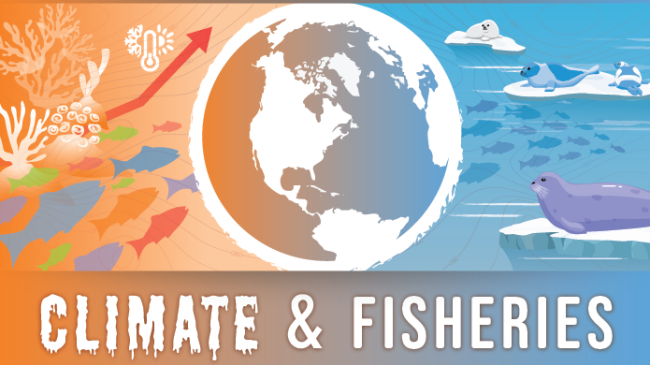
A golf ball-size green sponge was discovered in 2005 by NOAA Fisheries coral biologist Bob Stone. Cancer researchers find promise in deriving new treatments from the sponge. (Image credit: NOAA)
A golf ball-size sponge discovered in the deepest, darkest ocean areas off Alaska holds promise in developing new treatments for pancreatic cancer, according to biomedical researchers.
Teams at the Medical University of South Carolina and Henry Ford Cancer Center in Detroit — who specialize in studying chemical samples from the ocean ecosystem — studied a sample of green sponge (Latrunculia austini) discovered by NOAA scientist Bob Stone during a fisheries survey in 2005. Upon examination, the cancer researchers uncovered molecular compounds effective at selectively targeting and killing tumor cells.
Read more about this discovery and ongoing collaboration.



